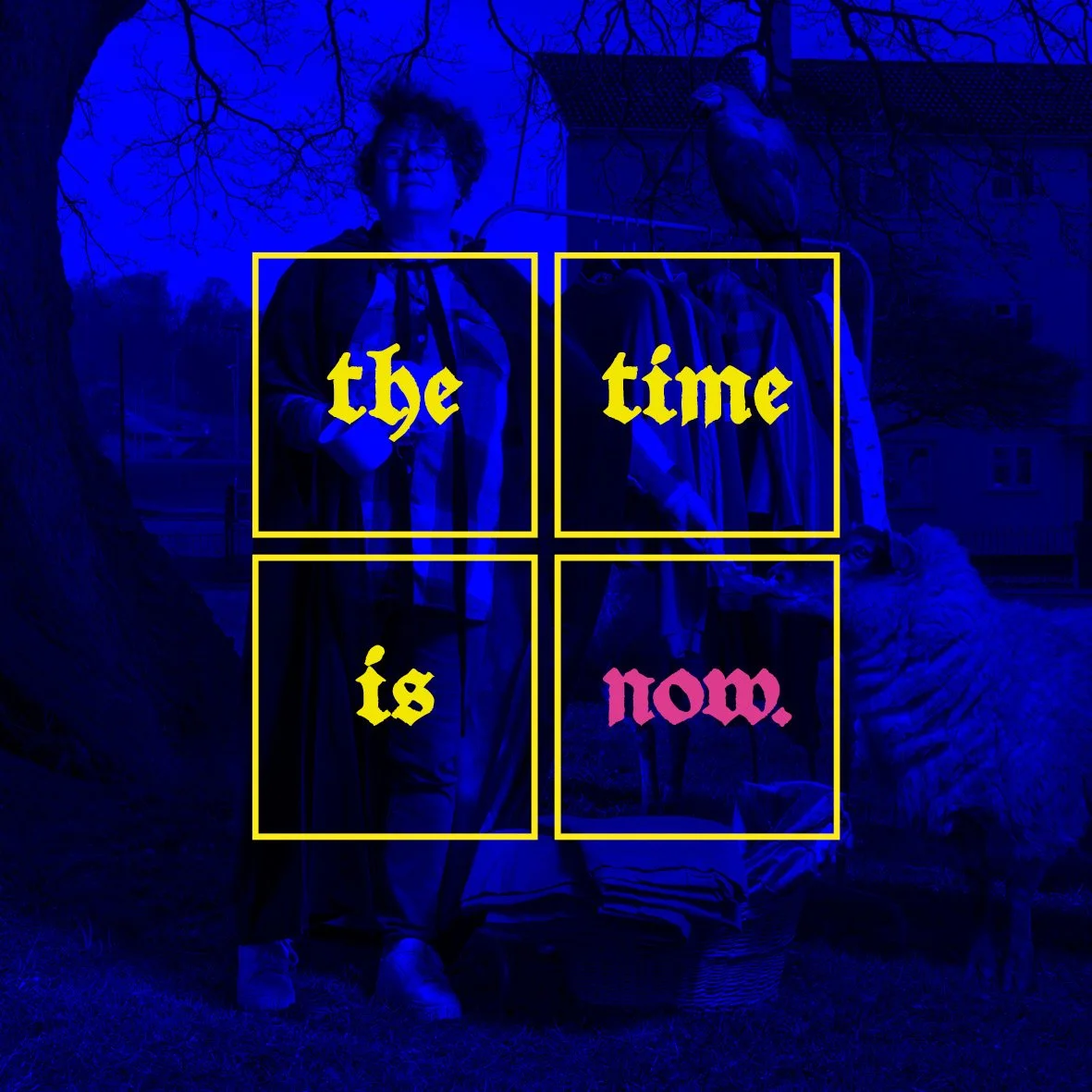Emma Wilson
A mix of old and new, traditional and forward looking, Matson is known for its post war housing, built by Gloucester Council between the 1950’s and 1970’s around the existing village and the common land of Sneedhams Green. The close knit community in Matson still has some of England’s most ancient grazing rights, and the local sheep still roam free among the houses and shops. They are much loved by local residents, and a distinctive part of Matson’s identity.
We really wanted to include the sheep in this picture - but they operate under their own rules so we weren’t sure if we would be lucky enough. We visited the farmer’s house to ask if we could use them in the shoot, but ended up helping his mum herd some rogue sheep out of her garden! On the day, they turned up at just the right moment, and we had to shoot quickly before they wandered away. It was spring and everyone loved seeing the lambs, we saw people coming out to feed them from the bottom of their garden.”
Emma Kernahan, project coordinator
Emma stands beneath an oak tree that sits at the heart of the Matson estate. A local story claims that it was planted to mark the procession of the body of Edward II to Gloucester Cathedral in 1327. There is no evidence to support this, but the tree is around 700 years old, and in England the oak is rich with religious and cultural significance, often symbolising strength and steadfastness.
Matson sits at the foot of Robinswood Hill, and a dry ski slope was built there in 1974. It is most famously was where Eddie the Eagle trained in the 1980’s.
It’s said that iron ore was mined on this hill before the Romans, and a largely forgotten ‘holy well’ at the foot of the slope is fed by a ferruginous spring (containing iron oxides), and lends its name to nearby Redwell Road. Some people say it was once known as ‘Edith’s Well’, and was created by the widow of a Saxon noble. After his death in the Battle of Hastings, she dug a hole in the bottom of the hill, intending for it to be her grave. But when it filled with red water she decided instead to devote her life to God, and lived nearby as an anchorite. There is no evidence for this either, but it makes for a good story!
The clothes rail in the image is taken from the Welcome Table Cafe, and it holds donations from the community. It also represents local stories of cloth and clothing being left by the well in exchange for the healing properties of its waters, particularly for eye conditions.
Emma herself wears a blue cloak, representing both the robes of St Hilda, who gives her name to the hall that housed the Welcome Table, and the ‘blue lady’, who is said to haunt a lane near St Katherine’s Church. Perhaps she is the Lady Edith. Or maybe a more recent resident of nearby Matson House, home to the Selwyn Family from the 17th century. This house was once a temporary residence for King Charles I and his two sons, during the civil war.
The parrot you can see here is a reference to a local bird called Mack, who has roamed freely around the estate for many years. It also hints at Matson’s global, colonial connections with Jamaica from the 1600’s onwards, through the Selwyn family.
Care, community and common ground - this is a portrait of Matson.
Founder of the Welcome Table, Matson
Photographed under the ‘Matson Oak’
Emma Wilson is a community worker who managed the Welcome Table Cafe, at St Hilda’s Church Hall in Matson, Gloucester.
Open between 2019 and 2025, it provided a warm, friendly space for local residents, as well as food, clothes and children’s toys.
In the picture, Emma shows the collective strength of the people behind the Welcome Table Cafe - she is carrying a cabbage donated that morning by the charity Fareshares, for use in the kitchen, and a cup of tea - one of thousands drunk in the cafe by people coming together for a chat and a cuppa.
Take a minute to write an introduction that is short, sweet, and to the point. If you sell something, use this space to describe it in detail and tell us why we should make a purchase. Tap into your creativity. You’ve got this.

